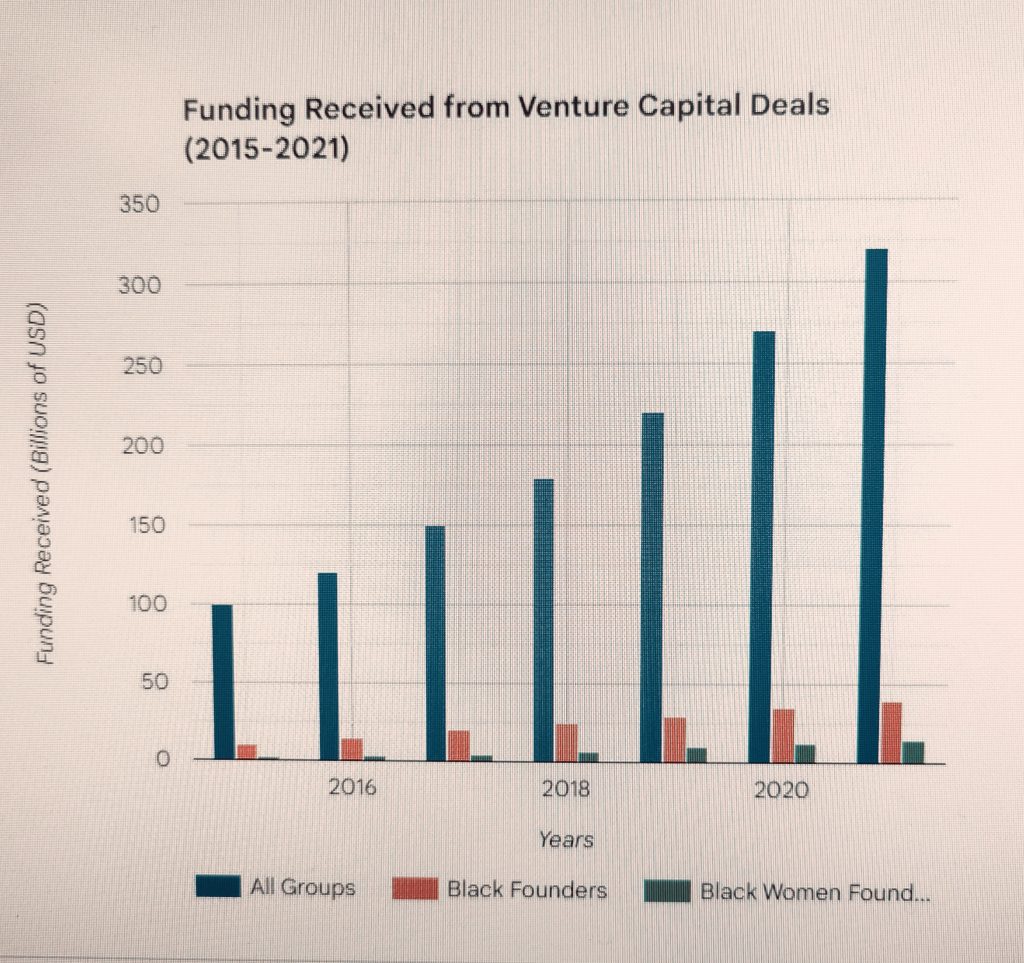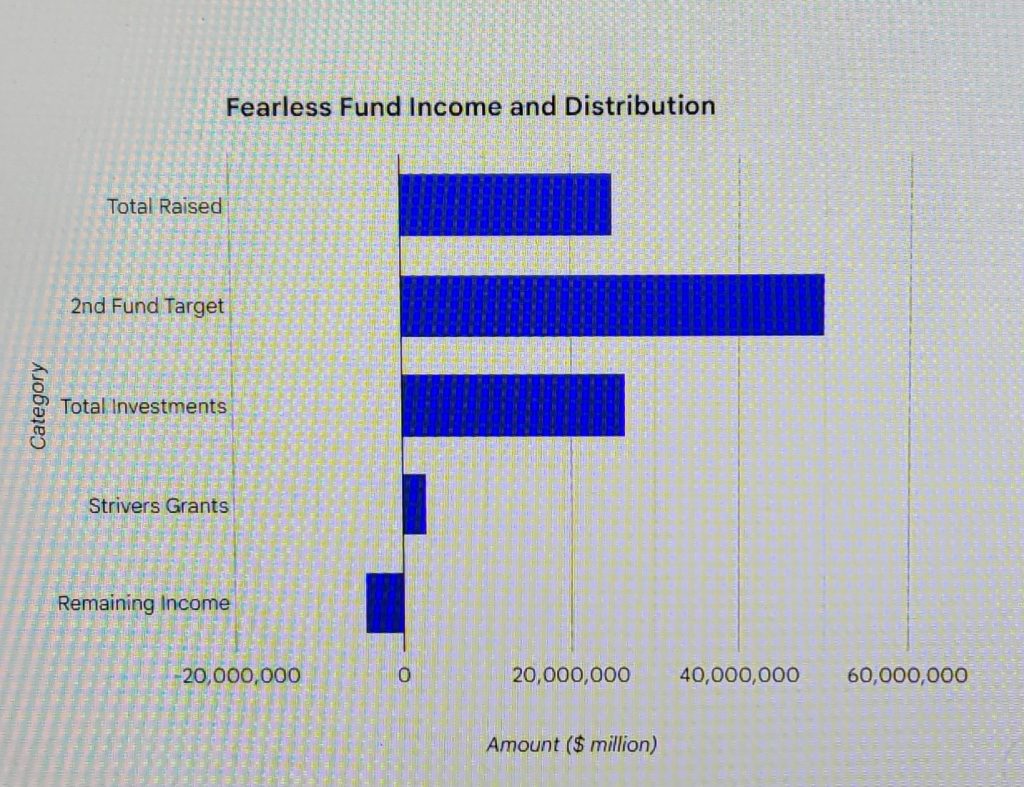Right-Wing Lawsuits and Black Women Entrepreneurs: The Race to Undermine Civil Liberties
In the landscape of entrepreneurship, where innovation meets opportunity, Black women founders stand at the intersection of ambition and adversity. However, beneath the surface of the bustling startup world lies a stark reality – a funding gap that disproportionately affects Black women entrepreneurs. As the struggle for economic equity persists, an unexpected battleground has emerged. In the crosshairs of conservative legal activism, Black women entrepreneurs find themselves at the forefront of a contentious battle to protect and preserve civil rights.
Black women entrepreneurs are the new front in conservative legal efforts to dismantle civil rights.
In recent times, a disturbing trend has taken shape, as conservative legal strategist Edward Blum turns his attention to dismantling initiatives aimed at addressing historical disparities. The target of his latest legal maneuver? The Fearless Fund, an Atlanta-based venture capital investment firm committed to empowering women of color-led businesses. Blum’s legal assault challenges the very essence of a grant program designed to uplift Black women entrepreneurs – a move that sets a troubling precedent in the ongoing fight for economic justice.
As we delve into this complex and contentious issue, it becomes apparent that the struggle for funding equality is not just a matter of economic policy but a battleground for the preservation of civil rights. This article will unravel the layers of this legal saga, exploring the implications for Black women founders, the broader conversation surrounding affirmative action, and the role of the judiciary in shaping the trajectory of economic equity.
Edward Blum’s Legal Activism: A Persistent Challenge to Civil Rights
Edward Blum, a notorious legal activist who has been behind several cases that weakened the Voting Rights Act and affirmative action.
Unveiling the Architect of Conservative Legal Campaigns
- Background: Edward Blum is a conservative activist who has been involved in several lawsuits challenging affirmative action, voting rights, and other civil rights policies. He is the founder and president of two nonprofit organizations: the Project on Fair Representation and the American Alliance for Equal Rights. He is not a lawyer, but he recruits plaintiffs and lawyers to pursue his legal agenda.
- Current lawsuit: Blum’s latest lawsuit is against Fearless Fund, a Black women-led venture capital firm that offers grants to Black women entrepreneurs. Blum claims that the grants discriminate against non-Black applicants and violate the Civil Rights Act of 1866, a law that was intended to protect the economic rights of freed slaves. He has obtained an injunction from two Trump-appointed judges to block the grants until the case is decided.
- Previous lawsuits: Blum has been behind several landmark cases that reached the Supreme Court, such as:
- Bush v. Vera (1996): Blum challenged the creation of majority-minority congressional districts in Texas, claiming they violated the constitutional principle of equal protection. The court agreed and ordered the districts to be redrawn.
- Shelby County v. Holder (2013): Blum persuaded a county in Alabama to challenge the Voting Rights Act of 1965, a law that required certain states and localities with a history of racial discrimination to obtain federal approval before changing their voting laws. The court struck down a key provision of the law, making it easier for states to enact voter suppression measures.
- Fisher v. University of Texas (2016): Blum recruited a white student who was denied admission to the University of Texas to sue the university over its race-conscious admissions policy. The court upheld the policy, but imposed stricter scrutiny on the use of race as a factor in college admissions.
- Students for Fair Admissions v. Harvard (2022): Blum represented a group of Asian American students who accused Harvard of discriminating against them in favor of Black and Hispanic applicants. The court rejected the claim, finding no evidence of intentional bias or racial quotas at Harvard.
Fearless Fund Under Fire: Struggling Against Legal Challenges
In the realm of venture capital, where innovation and inclusion intersect, Fearless Fund has emerged as a beacon of support for women of color-led startups. Founded in 2019 by actress Keshia Knight Pulliam, entrepreneur Arian Simone, and former Essence editor-in-chief Ayanna Angel, this Black women-led venture capital firm has garnered attention for its commitment to addressing the funding disparities faced by women of color entrepreneurs. However, recent legal challenges have cast a shadow over one of its impactful initiatives—the Strivers grants program.
Fearless Fund: Pioneering Change in Venture Capital
**A Catalyst for Change:**
Fearless Fund, since its inception in 2019, has been a driving force in the venture capital landscape. With a mission to empower women of color-led businesses, the firm has successfully raised over $25 million from corporate and individual investors. Its founders, each accomplished in their own right, brought their expertise to create an entity dedicated to breaking down barriers for underrepresented entrepreneurs.
Strivers Grants: Bridging the Funding Gap
**Empowering Black Women Entrepreneurs:**
In 2020, Fearless Fund, in collaboration with Mastercard, launched the Strivers grants program. This initiative was designed to provide vital support to Black women-owned businesses facing systemic barriers and a funding gap. Offering financial assistance ranging from $10,000 to $20,000, along with digital tools and mentorship, the Strivers grants aimed to be a catalyst for positive change in the startup ecosystem.
Legal Challenge: Edward Blum Takes Aim
**Unsettling Allegations:**
The optimism surrounding the Strivers grants was abruptly met with a legal challenge from conservative legal strategist Edward Blum. Blum, known for his involvement in cases that have weakened the Voting Rights Act and affirmative action, filed a lawsuit against Fearless Fund. His claim is that the Strivers grants discriminate against non-Black applicants, using the Civil Rights Act of 1866 as the legal basis for his argument.
Halting Progress: Two Judges, One Injunction
**Temporary Setback:**
In a surprising turn of events, two Trump-appointed judges granted Blum’s motion to halt the Strivers grants until the case is decided. This legal maneuver has left Fearless Fund grappling with the unintended consequences of a program meant to uplift Black women entrepreneurs facing systemic hurdles.
Broader Implications: A Threat to Civil Rights Progress
**The Unfolding Legal Landscape:**
Blum’s lawsuit against Fearless Fund is not an isolated incident but rather part of a broader attack on civil rights laws and protections for marginalized groups. If successful, this legal challenge could have far-reaching implications, potentially jeopardizing any policy or program aimed at promoting inclusion or equity for communities of color.
The lawsuit against Fearless Fund is part of a broader legal attack by Blum and others on civil rights laws and protections for marginalized groups. Blum has been behind cases that weakened the Voting Rights Act and affirmative action. If he succeeds, he could jeopardize any policy or program that promotes inclusion or equity for communities of color.
Resources:
1.https://www.mastercard.com/news/press/2022/february/mastercard-advances-commitment-to-black-women-owned-businesses-across-the-u-s-with-yearlong-programming-support-and-funding/
2.https://www.fearlessfund.foundation/strivers-grant-contest
Fearless Fund Finances: Empowering Dreams with Impactful Investments
In the fast-paced and often challenging world of venture capital, Fearless Fund has not only made its mark but has emerged as a beacon of support for women of color-led businesses. Founded in 2019, this Black women-led venture capital firm has not only raised substantial funds but has also leveraged its financial strength to make meaningful investments and drive positive change in the entrepreneurial landscape.
Financial Strength and Ambitions
**Total Funds Raised: $25+ Million**
Fearless Fund’s financial prowess is evident in its ability to secure over $25 million in funds. This significant capital forms the foundation upon which the firm builds its mission of empowering women of color-led businesses and addressing systemic funding disparities.
**Second Fund Target: $50+ Million**
As Fearless Fund looks to the future, its ambitions are not limited to its initial success. With a second fund target set at $50 million or more, the firm aims to amplify its impact and extend support to an even broader array of women of color entrepreneurs.
Impactful Investments
**Investments Made:**
Fearless Fund’s commitment to fostering change is not merely financial; it is manifested in tangible investments. With $26.5 million already invested in women of color-led businesses, the firm has demonstrated a strategic focus on backing enterprises that embody diversity, innovation, and inclusivity.
**Maximum Check Size: $2.5 Million**
Fearless Fund’s financial support is not limited to token amounts. With a maximum check size of $2.5 million, the firm has the capacity to make substantial investments, providing a significant boost to the growth and development of the businesses it chooses to support.
Strivers Grants: Nurturing Entrepreneurial Dreams
**Total Grants Awarded: $3+ Million**
Fearless Fund’s impact extends beyond traditional investments. The Strivers Grants program, launched in partnership with Mastercard, has already awarded over $3 million. These grants, ranging from $10,000 to $20,000, serve as a crucial lifeline for Black women entrepreneurs, bridging funding gaps and fostering innovation.
**12 Winners Annually**
Fearless Fund’s commitment to recognizing and uplifting talent is reflected in its annual selection of 12 Strivers Grants winners. This deliberate approach ensures a meaningful impact on a select group of entrepreneurs each year, creating a ripple effect within their communities and industries.
**City-Specific Grants**
In addition to its broader initiatives, Fearless Fund extends its reach through city-specific grants. This targeted approach acknowledges the unique challenges and opportunities present in different regions, allowing the firm to tailor its support to the specific needs of local entrepreneurial ecosystems.
Fearless Fund’s financial journey is not merely a testament to its success in the venture capital arena; it represents a commitment to transformative finance. By leveraging its funds strategically, the firm not only empowers individual entrepreneurs but contributes to reshaping the narrative of inclusivity, diversity, and equity in the business world. As Fearless Fund continues to chart its course, its financial strength remains a powerful tool for driving positive change and fostering a future where all entrepreneurs, regardless of background, can thrive.









